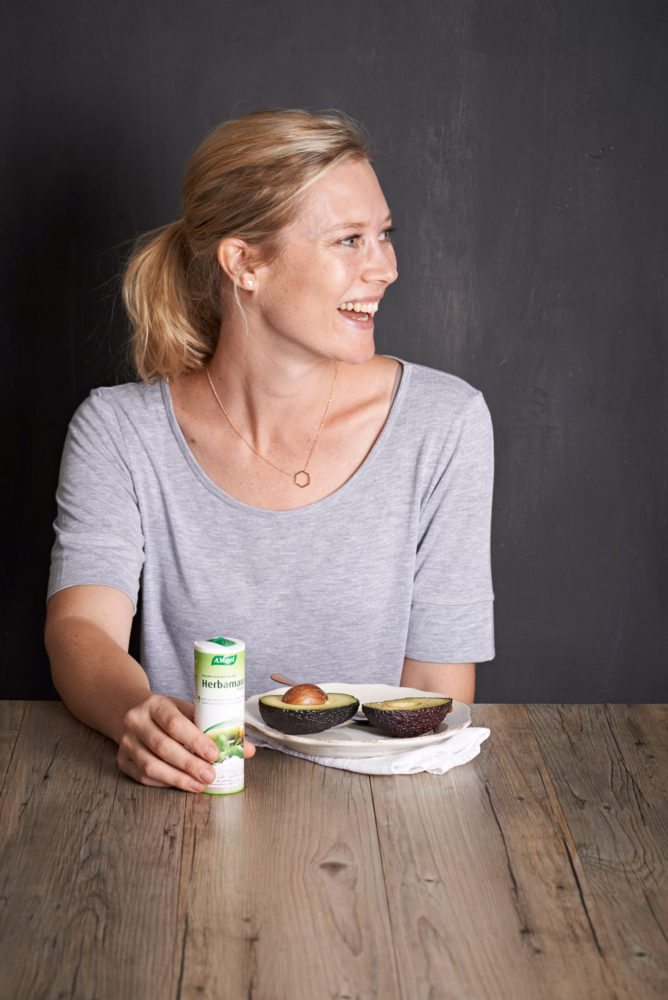/ Blog /
Hello Salt Awareness Week, And Meet Alfred Vogel

Hello Friends – It’s World Salt Awareness Week!
I have had so much to say about sugar these days (including this interesting interview with renowned anti-sugar campaigner, Sarah Wilson); but salt can pose just as much of a threat to our health if it’s included in our diets incorrectly.
Here is an interesting (and mildly terrifying) excerpt from the SA Heart and Stroke Foundation:
With 6.3 million people living with high blood pressure, South Africa has one of the highest rates of hypertension worldwide. This makes South Africans more susceptible to life-threatening diseases like stroke and heart disease. Statistics show that about 130 heart attacks and 240 strokes occur daily in South Africa. This means that 10 people will suffer a stroke and five people will have a heart attack every hour.
According to the Heart and Stroke Foundation SA, a staggering 80% of these cardiovascular diseases could be prevented through modified behaviour – like reducing salt.
This is the central message of the new group: Salt Watch. The World Health Organisation recommends that adults eat less than 5g of salt (a teaspoon) a day, but in South Africa some experts estimate that salt intake by some South Africans could be as high as 40g of salt a day. “The problem is that up to 60% of this salt is hidden in products and consumed by people probably unaware of the high salt content in their food,” says Dr Vash Mungal-Singh, CEO of the Heart and Stroke Foundation SA Internationally accepted guidelines state that any food with more than 600 mg of sodium per 100g can be considered unhealthy. In South Africa, many products exceed this limit. And the biggest culprit is bread, followed closely by margarine, butter spreads, stock cubes, soup powders, breakfast cereals and savoury snacks. Most of the salt in our diet is found in processed foods. Bread is the single highest contributor to the total salt intake of South Africans.
I urge you to read the whole article, here.
Ok, SO WHAT? Well, we need to eat less salt, and we can eat better salt. I’m working with the team at SA Natural Products on various projects at the moment, and their Herbamare seasoning range is full of so much goodness – 100% organic ingredients, no additives or preservatives, no MSG, and lots of love and care. This means that a little goes a long way – the flavours of the Herbamare range are so much purer, there are no bleached or chemical aftertastes, which means you need less, for a better end result. Win-win, surely?
And, here’s a little more about the man behind the Herbamare range, it’s an endlessly interesting and inspiring story about the famed and admired Swiss pioneer of natural health, Alfred Vogel.
Alfred Vogel was born in Switzerland in 1902. He was fascinated by nature, and the teachings about natural medicines from his parents and grandparents. He aspired to learn everything he could about medicinal plants and create natural medicines and products. His work took him all over the world to study the plants he’d heard about and meet the peoples and tribes in these countries.
Herbamare is one of the food products he created. Here is an excerpt from his book ‘The Nature Doctor’ (published in 1952)
The Art of Seasoning
When suffering from high blood pressure it is important to consider the type of condiments used. Since too much salt can increase the blood pressure, the diet should be very low in salt, just as is necessary in the case of kidney trouble. Instead of using salt without thinking, you must learn the art of proper seasoning. This is something that every cook should know, especially if diet meals have to be prepared. Food should never taste dull or else it will be unappetising. Instead of the salt, the following spices and herbs, if used moderately, are better for your health: horseradish, parsley, marjoram, thyme, and if you like, chillies, paprika and curry. Garlic adds a pleasant flavour to rice dishes too. Herbamare makes seasoning easier and is economical to use.
And a few thoughts from Alfred Vogel in relation to Thyroid function and Salt intake:
The introduction of iodised salt was prompted by the observation that people who live by the sea hardly ever suffer from thyroid problems. The iodine of the sea, especially in sea salt, was rightly taken to be the reason for this. Even though the cause of the problem was correctly analysed, the wrong solution was adopted. A manufactured product simply does not have the same effect as a substance found in nature. Sea salt is an excellent source of iodine and everyone in ‘goitre’ areas should use only natural sea salt for seasoning…. Although sea salt contains iodine, nature has included it in such combinations and proportions that you need never fear any of the disturbances that iodised salt brings about. Moreover, when fresh herbs are added to sea salt you get the perfect herbal seasoning salts known as Herbamare.
So there you go, Think Salt!
Thanks for reading
Sarah xx







